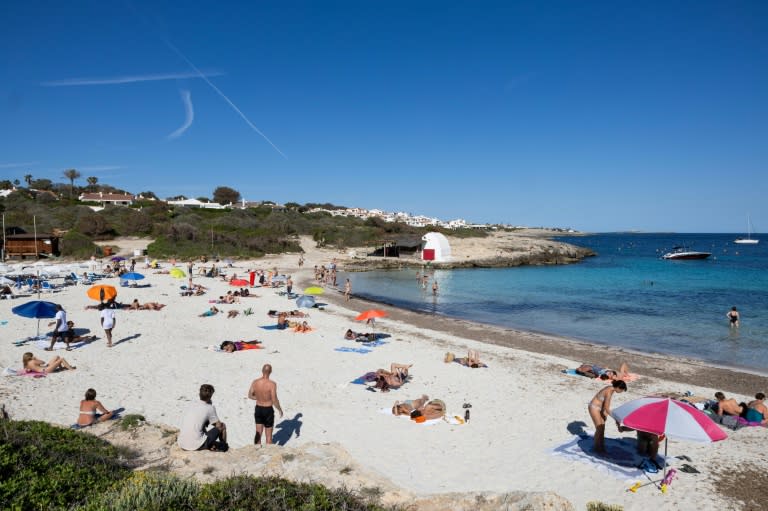
The economies of Spain, Greece and Portugal, derided as ‘Club Med’ countries during the European debt crisis 15 years ago, are now outperforming their northern peers thanks to a recovery in tourism.
The three countries faced harsh austerity measures in the early 2010s imposed by their partners in the European Union, who quickly blamed their economic problems on lax fiscal policies and lack of competitiveness.
But “the situation has changed” since the end of the Covid-19 pandemic, said Zsolt Darvas, an economist at Bruegel, a Brussels-based think tank.
“Nowadays, those countries are growing faster than the European Union average, they are no longer seen as black sheep.”
Spain’s gross domestic product (GDP) grew by 2.5 percent last year, while Portugal’s economy grew by 2.3 percent and Greece’s by 2.0 percent.
That compares with 0.4 percent growth for the entire 27-member European Union, which was weighed down by Germany’s 0.3 percent contraction, which would make Germany the world’s worst-performing major economy in 2023.
The International Monetary Fund expects the three countries to continue their outperformance this year, albeit at a more modest pace.
It sees growth this year of 2.4 percent in Spain, 1.7 percent in Portugal and 2.0 percent in Greece.
The Spanish economy is booming, Spanish Prime Minister Pedro Sanchez said recently. The country is “the locomotive” of job creation in the EU, he added on Thursday.
– ‘Great efforts’ –
Economists say the turnaround is largely due to a strong rebound in tourism, which reached record levels last year after the lifting of pandemic travel restrictions.
The sector is crucial for the three countries, which account for almost 25 percent of the Greek economy, and 12 percent in both Portugal and Spain.
The trio of countries will also benefit from the EU’s massive pandemic recovery fund, whose mix of grants and loans in return for structural reforms will largely go to southern countries.
Spain – the fund’s biggest beneficiary after Italy – has so far received €38 billion, Greece €15 billion and Portugal €8 billion.
The three countries have also made “great efforts to improve their economic attractiveness” with structural reforms that have increased their competitiveness and improved their labor markets, Darvas said.
The reforms have helped attract foreign investment, especially in renewable energy and cloud computing.
Amazon’s cloud computing division AWS announced last month that it would invest more than 15 billion euros in the expansion of its data centers in Spain.
Many car manufacturers such as Volkswagen and Stellantis, with brands such as Peugeot, Fiat and Jeep, have chosen to assemble their new electric vehicles in Spain, Europe’s second largest car producer after Germany.
-Challenges persist-
However, the growth spurt in the three countries is partly catching up after the sharp decline in GDP during the financial crisis. For example, Greece’s gross domestic product (GDP) fell by 25 percent.
Economists warn they still face challenges.
Although they have all seen unemployment fall, the unemployment rate in Greece and Spain is above 11 percent, well above the EU average of 5.9 percent.
And former European Commissioner for Economic and Monetary Affairs Olli Rehn told AFP that “deficits and debt levels remain high in some cases,” even though “differences between euro area countries have narrowed compared to a decade ago.”
Portugal posted a budget surplus of 1.2 percent of GDP last year, while Greece’s government deficit fell from 2.5 percent the year before to 1.6 percent in 2023. The EU average is 3.5 percent.
This has helped push the interest rate on ten-year loans down from 13 percent during the financial crisis to 3.5 percent.
Darvas said the “convergence” of southern European countries with northern countries is “likely to continue” but at a “slower pace”. Spain, Portugal and Greece still have “work to do”, he added.
hec-lf-vab/ds/lth/lb







